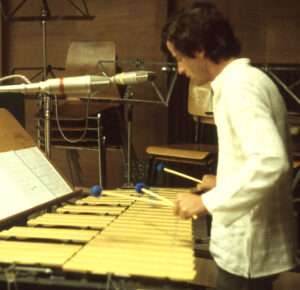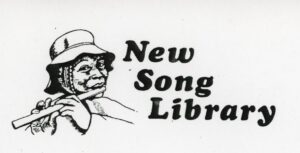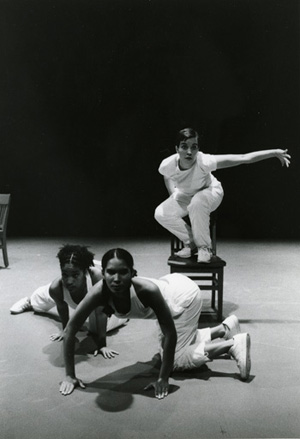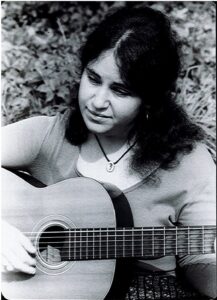Bobby Naughton Papers
1967-2018 Bulk: 1970-1980
17 boxes 19 linear feet
Call no.: MS 1278
 Undated photograph of Bobby Naughton playing the vibraphone in a recording studio
Undated photograph of Bobby Naughton playing the vibraphone in a recording studio
Robert Joseph “Bobby” Naughton was an American vibraphonist, pianist, and composer in the avant-garde/21st Century modern/improv tradition of jazz that evolved in the 1960s and early 1970s. Originally a pianist, Naughton became known as a vibraphonist. Besides writing and recording his own compositions, he collaborated with other artists including trumpeter Wadada Leo Smith and his New Dalta Ahkri Ensemble, Sheila Jordan, Perry Robinson, Anthony Braxton and the Creative Music Orchestra. Naughton was an integral member of the Connecticut creative music network of the 1970’s.
Born in Boston on June 25, 1944 to William and Rose Mary Naughton, Bobby studied piano from the age of seven through his teens and played in several rock, blues, and lounge bands. He served in the U.S. Army and studied painting in art school. In the late 1960s, he began playing vibraphone, accompanying Sheila Jordan and clarinetist Perry Robinson where he participated in New York’s legendary loft jazz scene. In 1969, Naughton recorded for the first time. His debut album, Nature’s Consort, was released on his own Otic record label, where he continued to release music throughout his career. In 1976, along with Wadada Leo Smith, he became involved with the non-profit Creative Musicians’ Improviser’s Forum (CMIF), a collective that supported musicians, presented concerts, and was loosely based on Chicago’s Association for the Advancement of Creative Musicians (AACM). Some of Naughton’s other credits include composing music for the silent film Everyday by German artist Hans Richter, playing in the Jazz Composers Orchestra in 1972, and touring Europe with Anthony Braxton and the Creative Music Orchestra in 1978 and 1982.
In the 1980s, seeking a steady income and health insurance, Naughton moved to Providence, RI and began working as a locksmith. He recorded again in 2008, with drummer Laurence Cook and bassist Joe Fonda, leading to the album Pawtucket. Naughton died at the age of 78 in 2022.
The centerpiece of Naughton’s collection is a trove of live recordings recorded on 7″ and 5″ reel to reel tapes, cassettes, and CDs made between 1967-2018. These recordings document every period of Naughton’s career and his various collaborations. The recordings are supplemented with sheet music, posters, clippings, administrative paperwork, some photos, 1/4″ and 1/2″ reel masters of Naughton’s albums, and copies of his released albums on vinyl and CD.
Gift of Ed Hazell, 2024
Subjects
Free jazzImprovisation (Music)JazzJazz musicians--ConnecticutVibraphone music (Jazz)Vibraphone with jazz ensembleContributors
Braxton, AnthonyJordan, SheliaRobinson, PerrySmith, Wadada Leo, 1941-Types of material
AudiocassettesAudiotapesCD-RsClippings (information artifacts)Color slidesCompact discsMagazine clippingsMagazines (periodicals)Open reel audiotapesPosters
Restrictions: The copyright for Naughton's music is held by Ed Hazell.

 Visit the NEA Publications online
Visit the NEA Publications online




